MercoPress. South Atlantic News Agency
Stories for April 21st 2010
-
Wednesday, April 21st 2010 - 17:46 UTC
Colombian presidential candidate accuses Chavez of interference

Colombia’s leading presidential candidate Juan Manuel Santos claimed that Venezuela’s Hugo Chavez is intent in interfering in his country’s electoral process that next May 30 will decide on the successor of President Alvaro Uribe.
-
Wednesday, April 21st 2010 - 17:24 UTC
Falklands’ sovereignty: a bilateral issue between Argentina and UK, says Spain
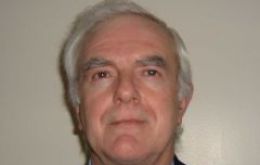
Spain will not be supporting Argentina’s Falkland Islands sovereignty claim during the coming European Union and Latinamerican summit to be held next May 18 in Madrid, according to Falklands Legislative Assembly Member Roger Edwards recently back from Brussels.
-
Wednesday, April 21st 2010 - 17:08 UTC
UK unemployed reach 2.5 million in February, highest since 1994

The number of people unemployed in the UK rose by 43,000 to 2.5 million during the three months to February, official figures have shown. The jobless total is now at its highest since 1994.
-
Wednesday, April 21st 2010 - 16:59 UTC
Satellite mapping show Chilean cities hit by quake have “grown” in height
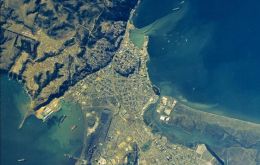
Chilean scientists working next to US Geological Service (USGC) peers are mapping areas of the country devastated by the February 27 earthquake to determine how much has changed geographically.
-
Wednesday, April 21st 2010 - 16:48 UTC
Ash-cloud cost airlines 1.7 billion; IATA calls for government compensation
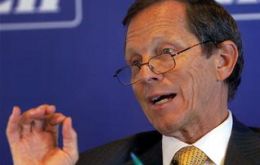
The International Air Transport Association (IATA) estimated that the Icelandic volcano crisis cost airlines more than 1.7 billion US dollars in lost revenue through Tuesday—six days after the initial eruption. For a three-day period (17-19 April), when disruptions were greatest, lost revenues reached 400 million USD per day.
-
Wednesday, April 21st 2010 - 16:27 UTC
Chilean president to sell holding in television network: 160 million USD
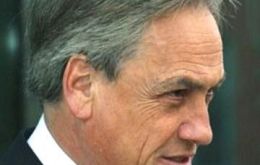
Chilean billionaire-businessman-turned-president Sebastian Piñera is in the process of selling Chilevisión, the third most watched television network in the country.
-
Wednesday, April 21st 2010 - 16:13 UTC
IMF warns about asset bubbles in developing powers in Latam and Asia
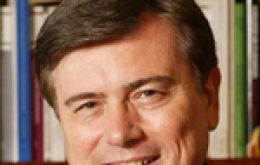
The International Monetary Fund (IMF) has urged developing powers in Asia and Latin America to guard against the kinds of asset bubbles that caused wealthier economies to plunge into recession in the last two years.
-
Wednesday, April 21st 2010 - 03:29 UTC
Brazilian government awards bid to build controversial Amazon dam
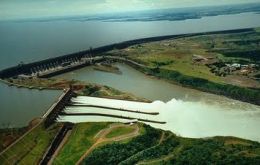
The Brazilian government accepted bids Tuesday to build what would be the world’s third-largest hydroelectric dam in the Amazon. Officials proceeded with the auction immediately after a judge overturned another magistrate’s injunction blocking the tender and revoking the environmental permit for the 11,000 MW Belo Monte complex.
-
Wednesday, April 21st 2010 - 03:24 UTC
Argentine military Junta president sentenced to 25 years in prison
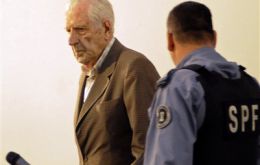
Retired General Reynaldo Bignone, 82, the last leader of Argentina’s 1976-1983 military regime was sentenced Tuesday to 25 years in prison for crimes against humanity.
-
Wednesday, April 21st 2010 - 03:16 UTC
Lula da Silva says Brazil must extend a hand to Latinamerica’s poor countries

President Lula da Silva defended his “diversification” diplomacy and said that Brazil must extend “a friendly hand” to all Latinamerican countries. He recalled that some interest groups in Brazil wanted him to strongly confront the governments of Bolivia and Paraguay because of differences over energy policies.
